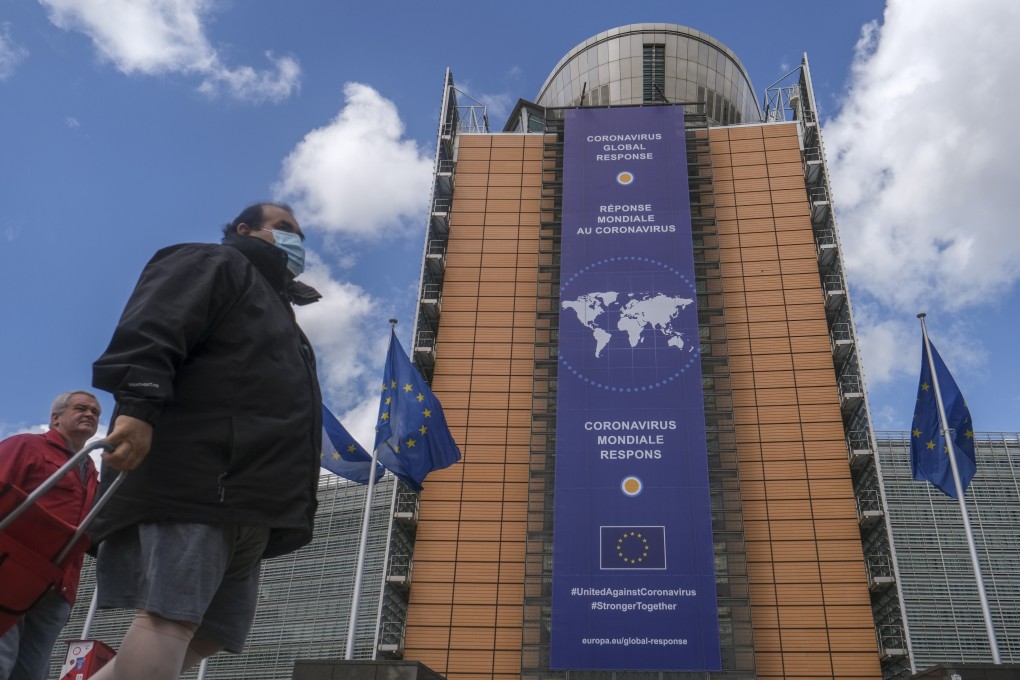Europe leads push for global coronavirus response as China and US trade accusations
- A virtual summit of 40 countries hosted by the European Union hopes to raise US$8.2bn to develop vaccines and treatments and ensure they are distributed equally
- China will join Monday’s event despite previous focus on blame game with Washington but the US remains reluctant to join coordinated effort

European leaders have called for a coordinated, science-based response to the Covid-19 outbreak as the US and China continue to bicker over responsibility for the outbreak.
A virtual summit on Monday, hosted by the European Commission, hopes to raise an initial US$8.2 billion to back an international effort to develop and ensure equal access to vaccines and treatments.
China is expected to join around 40 other countries in pledging funds at the event, but the US is not expected to take part.
“Together, we have to ensure that resources will continue to be mobilised and that progress will be made to achieve universal access to vaccination, treatment and testing,” the leaders of Italy, Germany, France, Norway and the EU wrote in a letter published on the British news portal The Independent.
“We are determined to work together, with all those who share our commitment to international cooperation. We are ready to lead and support the global response,” they wrote.
The European push for more global coordination comes as concerns grow around the difficulty of coordinating an effective worldwide response amid rising US-China tensions.